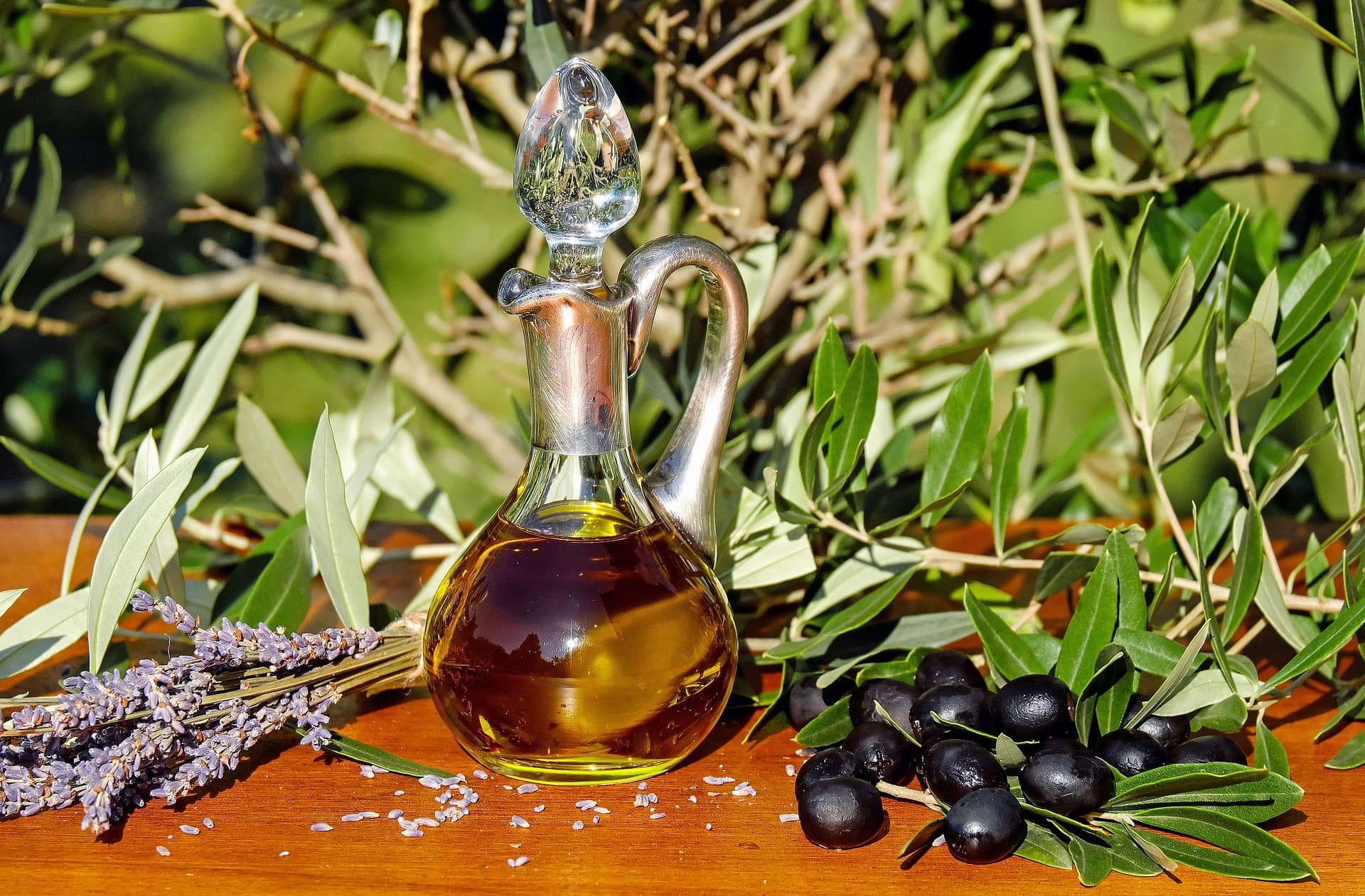Even though the United States is making its way to an olive oil-producing nation, the US still imports a huge amount of olive oil from all around the world. As of 2020, the US stood out as the second largest importer of olive oil in the world with a 17.9% share in world imports of olive oil and importing over 403 thousand tons of olive oil.
The olive oil production in the United States can still be considered as in its infancy stage if one would like to compare with the Mediterranean region where the oil has been produced for thousands of years. As a matter of fact, one of the largest olive oil producing companies in the US (California Olive Ranch) was only established in 1998, and their olive trees are just over a few decades old. This may explain why the United States is one of the top importers of olive oil which is in a way to meet the market demand.
Due to growing health consciousness, the emergence of higher-income consumers, and the growing interest in the nutritional benefits of olive oil, the demand for the oil in the US has only known growth. There has been an increase in the demand for olive oil across food services like restaurants and retail channels. The annual growth in quantity imported between 2016-2020 has been at 6% and the annual growth in value imported between 2019-2020 has increased by 4%. Over 75% of the market share of US imports of olive oil is controlled by Italy, Tunisia, and Spain. Portugal, Greece, and Turkey control 16.1% and over 9% by the rest of the world.
Importing Olive Oil in the US
To import olive oil in the United States, one must go through the list of rules and regulations for importing food into the country which is set by government agencies like FDA and CBP. When olive oil is imported as food or edible oil, the shipment must be in compliance with the FDA rules and regulations.
Importing olive oil from an FDA approved region can be good for the shipment. However, the producing company can also obtain a registration with the FDA which makes it much easier for the shipment to be processed and approved once it is in the United States.
The main requirements for shipments of olive oil destined for the United States may include;
– A food facility registration
– The country of origin
– Prior notice of the shipment in transit
– And also the Foreign Supplier Verification Programs (FSVP)
While working closely with FDA, it is also important to follow the requirements for CBP. The olive oil, which is obtained from an agricultural crop needs to meet the CBP requirements and the shipment must be certified. Foods that are imported into the US must meet the standards of foods produced in the States. As mentioned earlier, imported foods need to come in from an approved region which is why a certificate of origin must come with the shipment for CBP to work with during the clearance process.
CBP stands for U.S Customs and Border Protection. The CBP makes sure all duties and fees are correctly assigned and received at the port of entry. The CBP has jurisdiction for every major port in the United States and plays a major role during the customs clearance process.
Requirements for CBP include a bill of lading from the side of the shipper or carrier before the olive oil shipment departs the country of origin. Also, the shipment needs to be declared electronically with information about what’s aboard the shipment and when the ship will be arriving at US borders. While the shipment makes its way through transit to the US, the CBP decides if the olive oil shipment requires any further investigation. With any improper declaration, the shipment can be rejected.
If the olive oil shipment is accepted to enter the US, the importer will be notified and required to file a formal request for custom release within a period of 15 days. If you are working with a customs broker, they are professionals, licensed through CBP to facilitate custom releases. After all is set and done and within 7-10 working days, the importer of the olive oil will need to submit an entry summary for consumption and make payments for the duties or tariffs.
Once all is confirmed, the olive oil shipment will be released and the importer can pick up the shipment at a destination prearranged with CBP. In some situations, the CBP can undertake another entry review to make sure all the duties are levied properly, may offer a refund or request for more documentation.
Once the olive oil has been picked up, CBP will complete their assessment, review the tariff category and value of the olive oil. During liquidation, the amount for the duty will be posted, and should the be any tariffs not already paid, the importer will then be billed which is why custom bonds are also required to cover the shipment.
Customs bonds, what are they?
A custom bond can be considered as a legal contract between the customs (CBP), a surety company or broker, and the principal which is the importer or sometimes the shipper. What the custom bond does is, it guarantees the importer will meet all the customs requirements and regulations. An example can be the payment of taxes, duties, fines, and penalties. In simple terms, it ensures the importer is in good standing to comply with CBP at all stages of the customs clearance process.
Custom bonds are usually required if the shipment falls in a formal entry process, if the shipment is worth $2,500 USD or over and also if the shipment requires the expertise of other US government agencies. Since olive oil falls under the food category, the FDA must be involved and the shipment must also meet the FDA requirements.
The FDA requirements for importing olive oil.
First of all, before importing olive oil into the US, it is important to consider if the company you are importing from is situated in an area approved by the FDA. Many companies interested to export their products into the US go the extra mile to secure an FDA certificate. This can be very important and an added advantage as such companies already have their products approved by the FDA. It is advisable to work with such companies. This doesn’t mean no further inspections will be carried out by FDA when the shipment arrives. It just facilitates the process.
The FDA is more concerned about safety, sanitation, and labeling which is very important to pay attention to your packing consideration. If any of the FDA requirements are not properly addressed, your shipment can be delayed or for a worst case scenario rejected.
The oil must be safe to use, and if possible you can present sanitary certificates for the olive oil and any quality or sanitation control requirements. For labeling, you must make sure the oils are labeled properly. The sales labeling must contain details of the product like the specification, expiration dates, quality certificates, country of origin, etc.
Import Duty and Tariffs For Olive Oil
Import duties and tariffs can be considered as the taxes and fees associated with importing a good into another country. Tariffs can differ between countries due to both countries’ trade relations and are collected when the shipment arrives in the US and before the shipment can be released. Since duties and tariffs can vary between countries, it is largely determined by the value of the shipment aggregated on the approved percentage for the respective country the shipment is coming from.
Import duties can also vary between the quality of the oil like say, organic, virgin, or extra virgin. Modified oils can also be levied differently. The average tariff (estimated) applied by the US has been at 0.4% as of 2020. High tariffs and duties are usually imposed on countries with poor trade relationships and also to protect local producers.
Before importing olive oil from a specific country, try to check the tariffs and duties for importing olive oil from that specific country. It is very important if you are importing olive oil to re-sell as higher tariffs can affect the price and limit your competitive ability.
The Top 10 Exporters of Olive Oil to the United States
| Exporters | Value Imported in 2020 (USD thousand) | Trade balance in 2020 (USD thousand) | Share in US Imports (%) | Quantity Imported in 2020 | Quantity Unit |
| Italy | 524,126 | -523,899 | 38.3 | 127,979 | Tons |
| Tunisia | 282,285 | -282,144 | 20.6 | 100,280 | Tons |
| Spain | 240,523 | -240,327 | 17.6 | 84,820 | Tons |
| Portugal | 134,792 | -134,792 | 9.9 | 36,357 | Tons |
| Greece | 44,095 | -44,095 | 3.2 | 11,050 | Tons |
| Turkey | 40,639 | -40,639 | 3 | 17,250 | Tons |
| Chile | 29,524 | -29,493 | 2.2 | 8,572 | Tons |
| Argentina | 25,616 | -25,616 | 1.9 | 8,037 | Tons |
| Morocco | 19,013 | -19,013 | 1.4 | 4,991 | Tons |
| Israel | 8,026 | -7,548 | 0.6 | 677 | Tons |
Which country is the largest exporter of olive oil to the United States?
As of 2020, and from our table above, Italy is the biggest exporter of olive oil to the United States with a 38.3% share in US imports and exported over 127 thousand tons of olive oil to the United States. The value in olive oil imported by the US from Italy as of 2020 was over $524 million USD. The second largest exporter of olive oil into the US is Tunisia, with an export value of over $242 million USD for exporting over 100 thousand tons of olive oil and controls a 20.6% share in US imports of olive oil. Spain comes in third with control of 17.6% share in US imports of olive oil and exporting over 84 thousand tons of olive oil with a market value of over $240 million USD. All three countries combined, control a market share of 76.5% of all US imports of olive oil around the world.
Challenges importing into the United States
Customs complications are an importers’ nightmare. While we all wish for a smooth import experience, it may not be the case in all situations. Here are some of the challenges you may face when importing your olive oil into the United States.
- – The Custom Process: Delays can be an issue if you are not really familiar with the US custom clearing process when importing products into the US especially food products like olive oil. The custom clearing process entails a series of “bottlenecks” and datelines that must not be neglected. It is very important to work with a CBP certified custom broker to stay one step ahead.
- – Poor quality control: It has been estimated that the majority of olive oil imported into the US are counterfeits or mixed with other chemicals to increase the quantity for a higher profit margin. It is very important to be mindful of the company you are importing your olive oil from.
- – Tariffs, Duties, and Fees: You can never tell what the exact tariff or duties can be for your next olive oil shipment. These fees can change without any prior notices. There can be a huge disruption to your supply chain. The government can change trade terms between nations which can greatly affect tariffs. Even the tariff between counties has never been the same if you want to import olive oil from different countries. Always stay in contact with your customs broker for regular updates.
- – Difference in Olive Oils: The category and blends can be different between countries of origin. You must be able to state exactly what blend of olive oil you are importing because this can cause serious delays if the customs prove otherwise.
Things to Consider When Importing Olive Oil in the United States
When importing olive oil in the United States and especially for the first time, it is very important to familiarize yourself with the complete process with custom clearance. Follow every step and requirement to avoid any delays or for your shipment to be rejected.
We highly recommend you work hand in glove with a customs broker. Custom brokers are professionals with adequate knowledge of the complete custom process. They will provide you with proper guidance on what to do and what not to do. They will follow through with the customs clearance process with you and make sure your goods are released and permitted for entry.
It is of prime importance to work with a company that is FDA approved or certified. Numerous olive oil producers and manufacturers have taken the liberty to obtain an FDA certified approval. Also, make sure the olive oil you are importing is produced from an FDA approved region. This can be a case when you can’t find a producer with FDA certifications.
Also, make sure the olive oil you are importing is of similar quality to what is produced in the United States. Know exactly what blend of olive oil you are importing and by all means, avoid counterfeits or mixed oils. It is also important to make sure the oil is properly labeled, with an expiration and “best use” date. Always ask for the country of origin of the oil ( if purchasing from an agent)and make sure the detail is not left out on the labeling.
Always stay up to date with the current market trends for olive oil in the United States and trade data. Keep an eye on the tariffs and duties as they can change without any prior notice. Keep close contact with your customs broker for frequent updates on tariffs and duties which are being imposed with partner countries you are interested in importing olive oils from.
And lastly, go for high-quality oils and keep it that way. Make sure to maintain the quality of olive oil you import and check with your manufacturer on the quality of the oils. Make sure their quality control is up to standard and check every batch before they are dispatched.
If you need help with importing olive oil into the United States, we are here to help. As a reputable export management company, we can make sure the best is what you will get. Contact us now.




